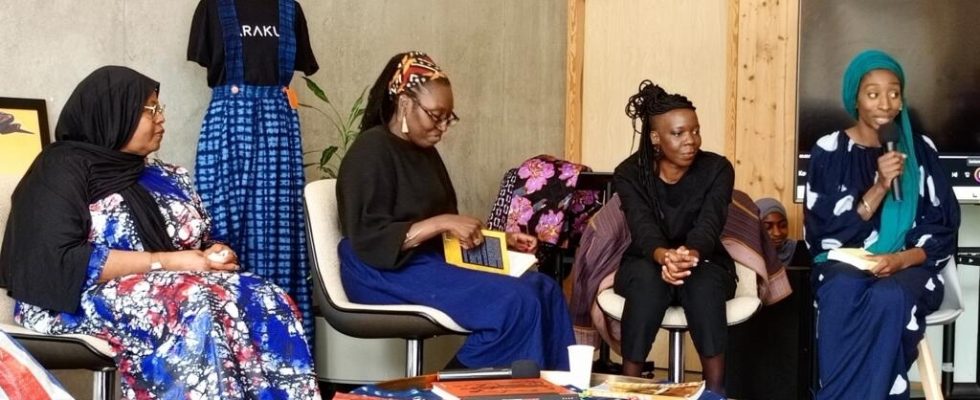This Saturday, May 4, a conference was held in Paris entitled “Roads and women, the migratory journey of our mothers”. An initiative to highlight the stories of women who arrived in France in the 1960s-1970s-1980s and whose stories are little told.
2 mins
In a crowded room at the Maison des conversations in the 18th arrondissement of Paris, the assembly was made up of more than 90% second or third generation women from West African immigration.
In front of them were five women, two of whom had lived in the Paris region for over 40 years, who spoke about their experiences. The latter two arrived in France as part of family reunification to join spouses, immigrant workers.
“ They arrived very very young »
“ These women did not always have the choice, they arrived very, very youngsays Koudedji Sylla, organizer of the event and who serves as their spokesperson. They left their family cocoon, they left a hot country for a cold country, where they had absolutely no command of the language. They don’t talk about all these traumas. It’s only today, growing up, being a mother myself, that I realize that it was violent. It’s a journey that must have made them suffer. »
Sufferings sometimes unrecognized by their own offspring. For more than three hours, testimonies and questions abound. During the discussions, several themes are discussed: education, racism, the transmission of African cultures, but also forced marriages and sexual violence within communities. Subjects on which there are divergent opinions depending on the generations.
“ We went from laughter to tears »
“ These women, they are not silent, they have been “silenced”, explains Mame Fatou Niang, lecturer at the University of Pittsburgh in the United States. And we saw it there, in this room where we went from laughter to tears. There were moments of tension, there was also a lot of love and we realize that in the middle of all that, there is incomprehension. So talking about it also means talking about it between us and for us. »
The initiative was partly organized by the Sarakulé brand, which works to highlight African fabrics and Malian artisans. By giving voice to these women who are affectionately called “ the mothers ”, in a form of “ group therapy “, this intergenerational conversation will have made it possible, according to the public, to lift the veil on certain immigration taboos.
Read alsoFrance: African diasporas launch a High Commission to end discrimination
